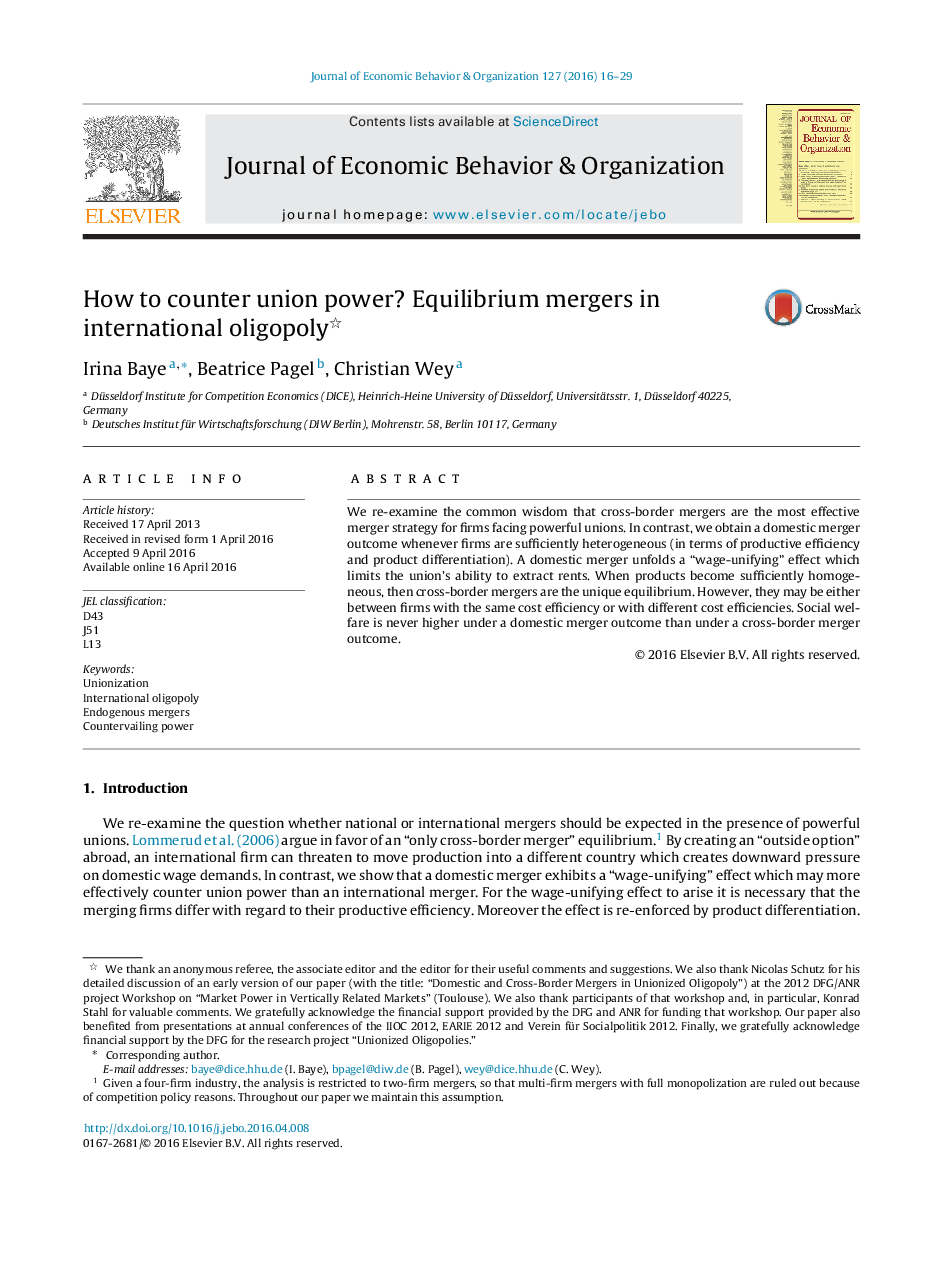| Article ID | Journal | Published Year | Pages | File Type |
|---|---|---|---|---|
| 7242808 | Journal of Economic Behavior & Organization | 2016 | 14 Pages |
Abstract
We re-examine the common wisdom that cross-border mergers are the most effective merger strategy for firms facing powerful unions. In contrast, we obtain a domestic merger outcome whenever firms are sufficiently heterogeneous (in terms of productive efficiency and product differentiation). A domestic merger unfolds a “wage-unifying” effect which limits the union's ability to extract rents. When products become sufficiently homogeneous, then cross-border mergers are the unique equilibrium. However, they may be either between firms with the same cost efficiency or with different cost efficiencies. Social welfare is never higher under a domestic merger outcome than under a cross-border merger outcome.
Related Topics
Social Sciences and Humanities
Economics, Econometrics and Finance
Economics and Econometrics
Authors
Irina Baye, Beatrice Pagel, Christian Wey,
